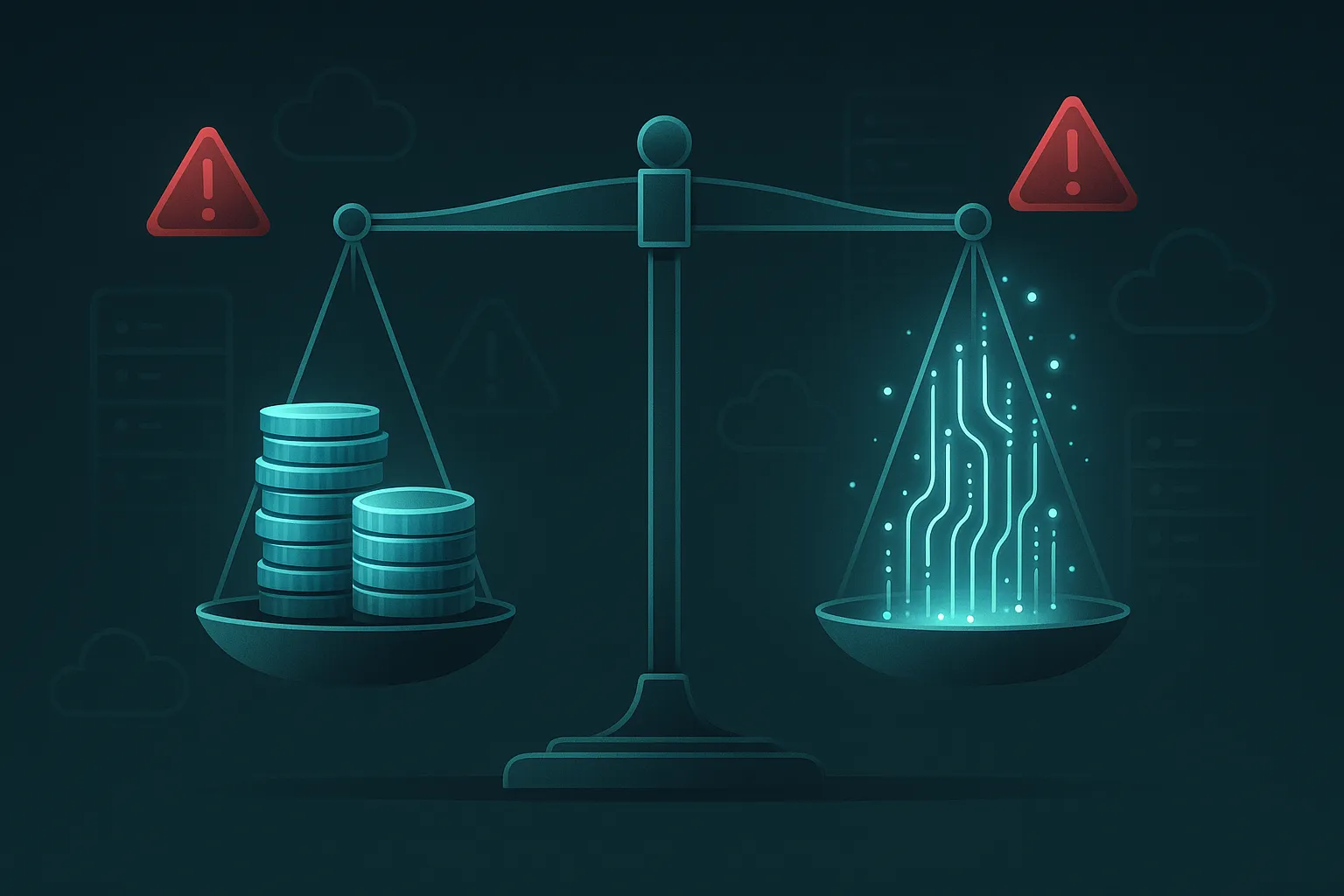Your business doesn’t need to choose what data to keep and what to delete

Data is the most important piece of a business when it comes to building new products and future plans. Without data, it is impossible to quantify what works and what doesn’t work, and spot patterns and potential from existing productions and services.
In today’s world there is a seemingly endless choice for data storage solutions, both for individuals and businesses of all sizes. And yet, many businesses are so constrained with their cloud and data storage providers that they are forced to decide exactly what data they can save, and what they must discard.
There are many reasons why companies might selectively store data:
- Their service options may be limited
- Their plans may be confusing
- They may fear bill shock
- They may also believe that curating their data makes things easier
These concerns are valid, but there are now solutions that can circumvent them and remove the need to dispose of data.
That’s important because, as we’ll explain, a business needs to focus on what it does best. That means serving its customers, creating innovative products and building for the future. In order to do that, cloud and storage services need to do what they do, without adding strain to a business.
Data Is the Lifeblood of Modern Business

Why do we care obsessively about data? It’s simple.
Every company today, no matter its size or industry, runs on data. Customer interactions, operational processes, sales performance, supply chains and even employee behaviour are among the interactions that produce valuable signals to be captured and analysed. This data isn’t just a record of the past, it’s the foundation for shaping the future.
Data is what enables businesses to understand their customers more deeply, anticipate market changes and build products to solve real problems. It underpins personalisation, predictive analytics, and the ability to compete in markets where speed and accuracy matter. Without it, companies are left making decisions on gut instinct, not evidence. In the long term, that is not sustainable.
For these reasons, data should never be treated as an expendable commodity. It is the lifeblood of modern business, a critical input on par with capital, talent, and technology.
The False Trade-Off: Cost vs Retention

Despite all that we’ve said, businesses often find themselves in the uncomfortable position of having to choose which data to keep and which to discard.
The cause isn’t a lack of recognition of data’s value, it’s the limitations of storage providers. We know this because it is a common reflection from prospective customers that we speak to every day.
Cloud storage is nearly-ubiquitous but it can be sold using confusing tiers, with pricing structures that seem designed to punish growth. We’ve all seen those viral posts about an unexpected AWS bill or pleas to Google or Microsoft to reduce a soaring bill after a product goes viral, or an API call goes rogue.
Businesses start with attractive entry-level packages, but as their data needs increase, so can their costs. Every extra terabyte feels like a financial risk. Bill shock, the fear of opening a monthly invoice and finding it significantly higher than expected, is very real.
The result is some companies take a defensive approach. Rather than building a culture where everything is captured, stored, and analysed, they start curating what they keep.
That means they must make arbitrary cuts: saving transaction data but deleting customer support logs, or keeping marketing performance but discarding historical operations records. These decisions are rarely strategic, they’re financially driven and can be haphazardly planned as data storage races towards limits or caps.
That can lead to a very real false trade-off: reducing costs at the expense of long-term business insight.
Deleting Data Is Costly Beyond Any Price

Sure, curating data might seem like a practical solution. It leads to fewer records, which means simpler systems, quick queries and, most crucially, lower bills. But the real cost is what comes later, and cannot be retroactively fixed.
Deleting data limits the scope and accuracy of analytics. Without a complete history, patterns become harder to spot, predictive models lose accuracy and insights can be skewed. A marketing team trying to understand long-term customer behaviour may find gaps that undermine their work. A compliance team may discover they’ve purged records that regulations later require them to produce.
Most importantly, particularly in the world of technology and startups where pivots are common and futures don’t run linearly, deleting data closes the door on unknown opportunities.
The most valuable insights can emerge years later, when businesses revisit historical data with fresh tools like AI. Companies that cut aggressively today may find themselves with little to feed into tomorrow’s models.
In that sense, data deletion isn’t just a short-term cost saver. It’s a long-term competitive disadvantage.
Storage Without Limits

The good news is that businesses no longer need to live with this compromise. Advances in storage technology, from sovereign cloud platforms, to backups and more transparent, scalable models, have changed what’s possible.
- Elastic storage removes the arbitrary limits that force businesses into making tough choices
- Sovereign storage ensures compliance and control without sacrificing performance
- Backups mean data that may not be needed now can be stored for the future
- Transparent pricing models mean companies can predict costs and scale with confidence, not fear
Instead of asking what they can afford to keep, businesses should start asking what they can create with the data they are capturing on a daily basis.
That shift in mindset is critical. Storage should not be a gatekeeper that adds strain. It should be an enabler that expands possibilities, particularly as AI becomes more sophisticated.
Focus on What Matters

The most consistent piece of feedback from businesses is simple. They want to focus on what they do best. That means serving customers, innovating products, and staying ahead of competitors. Managing storage constraints isn’t their job.
When companies don’t have to spend time pruning data or navigating storage plans, they gain back time and energy to reinvest in growth. Developers spend more time building, analysts explore richer datasets, and leadership makes decisions based on the full picture.
Smarter storage frees businesses from those distractions and lets them focus fully on their core mission.
The Future: Data Without Compromise

In this new AI-centric era, the companies that thrive will be those that see data not as a burden to manage, but as a foundation for advantage.
With AI, machine learning and automation advancing rapidly, historical datasets will only grow in importance. The ability to keep and leverage everything will become a decisive advantage.
A world where businesses no longer have to choose between deleting and retaining data is one where innovation accelerates. Instead of narrowing their vision, companies will have the freedom to explore, experiment, and adapt whilst knowing the data they need will always be there.
Data without compromise isn’t a luxury. It is the future. The sooner businesses embrace it, the stronger their foundation for innovation will be.



